Computer Science and Engineering
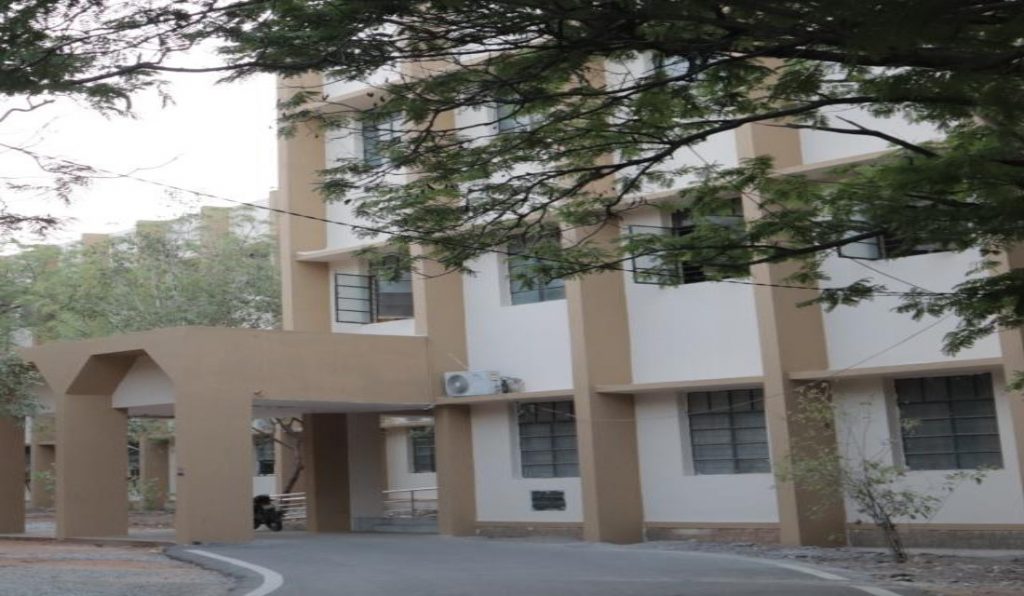
About C.S.E. Department
The Department of Computer Science and Engineering (CSE) was started in the year 1986-87. This department has been offering undergraduate course in the Computer Science and Engineering and Post Graduate Course in Computer Science and Engineering (CSE) started in year 2005 respectively. Several research scholars are pursuing Ph.D. Programs in the areas viz. Machine Learning, Deep Learning, Big Data, Distributed Computing, Cloud Computing, Computer Networks, Natural Language Processing, Speech Processing, Software Architecture and Software Testing.Faculty Details
| S.No. | Name | Designation |
|---|---|---|
| 1. | Dr. Ch. D. V. Subba Rao | Professor & Head |
| 2. | Dr. M. Humera Khanam | Professor, BOS |
| 3. | Dr. N. Usha Rani | Associate Professor |
| 4. | Dr. D. Vivekananda Reddy | Professor |
Vision
To be one of the premier departments for achieving excellence in teaching and research with social responsibility and for producing innovative technical graduates in Computer Science and Engineering.Mission
• To impart Computer Science and Engineering education by utilizing state of the art computing facilities.• To inculcate inter-disciplinary approach with reference to academic, industrial and research-oriented activities, infusing scholarly inquisitiveness, making an imprint in the technological, economic and social development of the nation.
• To impart quality technical education of international standard in terms of providing adequate exposure to quality & methods, e-technologies and work flow automation in particular.
• To develop adequate expertise within the department, to help and guide all other departments of the institution, constituent and affiliate colleges of the University, dealing with computer science education.
• To develop capabilities within the department to help and guide industries with respect to the IT requirements.
PROGRAM EDUCATIONAL OBJECTIVES (PEOS)
| PEO1: | To provide quality learning through effective teaching-learning process enabled by free and open learning environment in turn producing high quality graduate. |
|---|---|
| PEO2: | To prepare students for properly positioning them in the society (academic, industrial, research and entrepreneurial areas in particular) with reference to trans-disciplinary activities, regular professional activities with high degree of innovation, competence, and commitment. |
| PEO3: | To create broad based expertise in the areas of CSE in general and a few (minimum of 4 to 5) focused areas for in-depth study and high quality research such as e-technologies, very large databases, data mining / warehousing, networking, security, high performance computing systems, embedded systems, software engineering methodology, s/w quality testing, multimedia, theoretical computer science aspects and so on. |
| PEO4: | To inculcate the culture of lifelong learning during the evolution of the student to a full-fledged professional through educating the applicant about the ever increasing needs of the society, technological trends and ethical values. |
| PEO5: | To set up a sense of efficient administrative/economical practices, to evolve the applicant with the required leadership qualities and managerial skills |
PROGRAM OUTCOMES (POs)
| PO1: | Engineering knowledge: Apply the knowledge of mathematics, science, engineering fundamentals, and an engineering specialization to the solution of complex engineering problems. |
|---|---|
| PO2: | Problem analysis: Identify, formulate, review research literature, and analyze complex engineering problems reaching substantiated conclusions using first principles of mathematics, natural sciences, and engineering sciences |
| PO3: | Design/development of solutions: Design solutions for complex engineering problems and design system components or processes that meet the specified needs with appropriate consideration for the public health and safety, and the cultural, societal, and environmental considerations. |
| PO4: | Conduct investigations of complex problems: Use research-based knowledge and research methods including design of experiments, analysis and interpretation of data, and synthesis of the information to provide valid conclusions.. |
| PO5: | Modern tool usage: Create, select, and apply appropriate techniques, resources, and modern engineering and IT tools including prediction and modeling to complex engineering activities with an understanding of the limitations. |
| PO6: | The engineer and society: Apply reasoning informed by the contextual knowledge to assess societal, health, safety, legal and cultural issues and the consequent responsibilities relevant to the professional engineering practice |
| PO7: | Environment and sustainability: Understand the impact of the professional engineering solutions in societal and environmental contexts, and demonstrate the knowledge of, and need for sustainable development. |
| PO8: | Ethics: Apply ethical principles and commit to professional ethics and responsibilities and norms of the engineering practice. |
| PO9: | Individual and team work: Function effectively as an individual, and as a member or leader in diverse teams, and in multidisciplinary settings. |
| PO10: | Communication: Communicate effectively on complex engineering activities with the engineering community and with society at large, such as, being able to comprehend and write effective reports and design documentation, make effective presentations, and give and receive clear instructions. |
| PO11: | Project management and finance: Demonstrate knowledge and understanding of the engineering and management principles and apply these to one’s own work, as a member and leader in a team, to manage projects and in multidisciplinary environments. |
| PO12: | Life-long learning: Recognize the need for, and have the preparation and ability to engage in independent and life-long learning in the broadest context of technological change. |
PROGRAM SPECIFIC OUTCOMES (PSOs)
| PSO1: | Empowering the students for continuous learning and deliver efficient solutions for emerging challenges in the computation domain. |
|---|---|
| PSO2: | Ability to design, develop and implement problems of current research areas. |
Curriculum
The Choice-Based Credit System (CBCS) has been implemented from the year 2006-07. The courses are classified into basic, core and electives. Most of the theory courses are associated with corresponding laboratory courses to ensure that due importance is given for experimental work. Credits are assigned for each course based on the number of instruction hours allotted per week. A wide range of electives is offered for under-graduate students during the last two semesters of study. Further, they undertake application-oriented project works, along with course work, in the last two semesters. The post-graduate students undertake research-oriented study as project work exclusively for 12 months in the second year.Laboratories
The following laboratories are established in the department for the conduct of laboratory courses as per the curriculum.• IoT laboratory
• Microprocessor laboratory
• PC Hardware Laboratory
• High-Performance Computing Laboratory
• UG Software Laboratory
• PG Software Laboratory
Computer Hardware
The major computer hardware available in the department is:• Apple Power Mac G5 Computer Systems
• Sun Blade 1500 Workstation
• IBM Education Server 9110 Model 510
• High-performance Computing System (8-Node cluster)
• High-performance Computing System (8-Core Parallel System)
• IP Storage Area Network (IPSAN)
Software
The major software available in the department is:• Embedded system development software
• Network simulation software
• VHDL programming software
• DSP software
• Borland ALM Suite
• Sun Solaris OS
• Apple Mac Tiger OS
• IBM AIX OS
Library
The departmental library houses 2000 (approx) volumes from the disciplines of computer engineering, computer science, information technology and applications. The department subscribes for all IEEE Computer Society journals, magazines, and transactions regularly.Association of Computer Engineers (ACE)
ACE is a departmental student body which facilitates students to deliver talks on emerging areas of their discipline. Further, it invites reputed academics and practitioners for delivering talks on latest technical topics. In addition, it conducts technical quizzes, group discussions and competitions in software design and development. These activities of ACE help students to improve interpersonal communication, presentation, documentation and organizational skills. It also motivates students to acquire knowledge through self-study and share the same with others.Higher Studies
At least ten percent of the outgoing students secure high GATE scores and pursue higher studies in IITs and IISc. Another ten percent secure good GRE/ TOEFL scores and go abroad for pursuing higher studies in reputed universities.Placements and Training
Roughly eighty percent of the students obtain placements in reputed organization like Yahoo, Microsoft, Juno Online, TCS, Infosys, Wipro, Cognizant, Intergraph, Cordys, Virtusa, etc,.The department organizes industrial tours/ visits every year.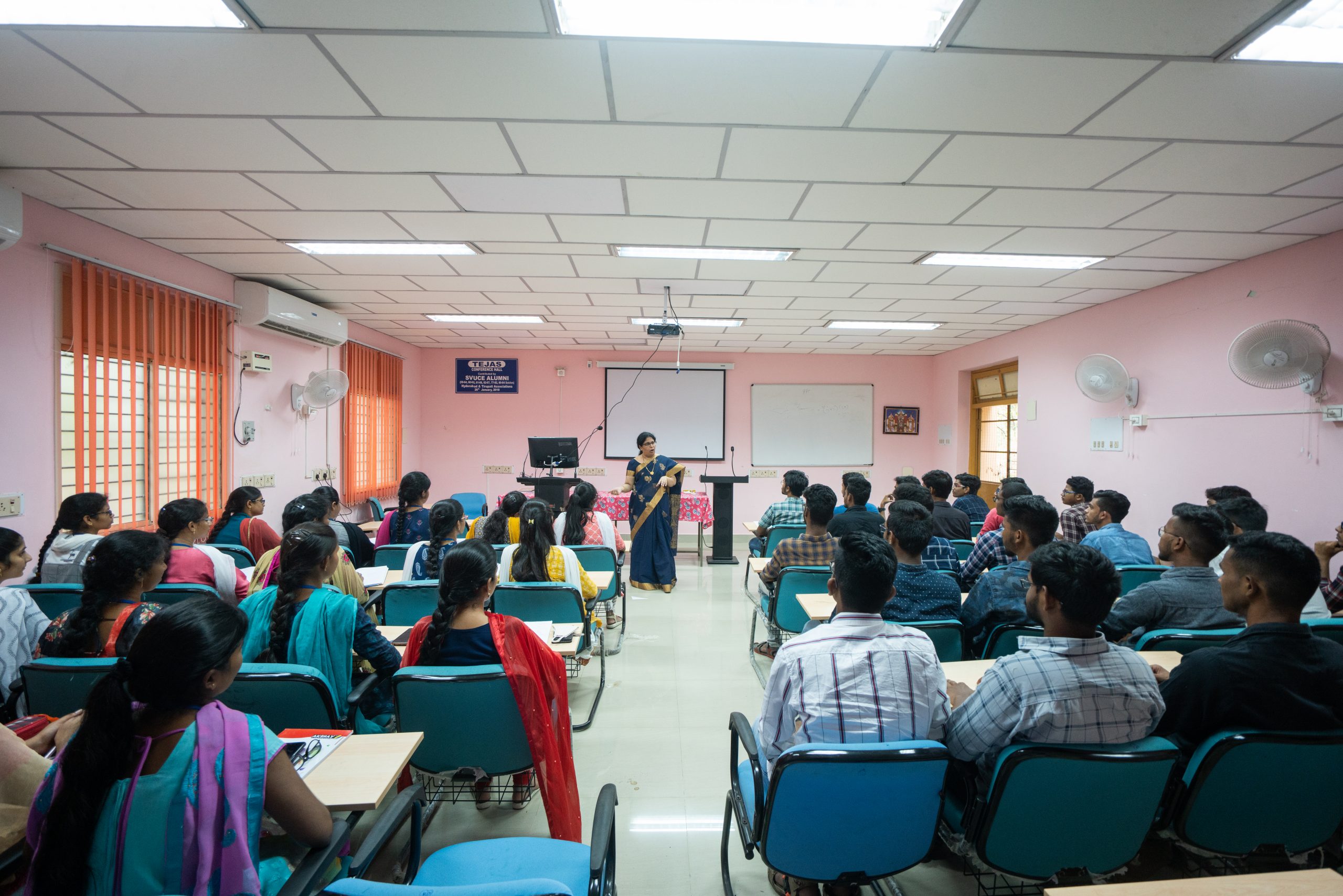
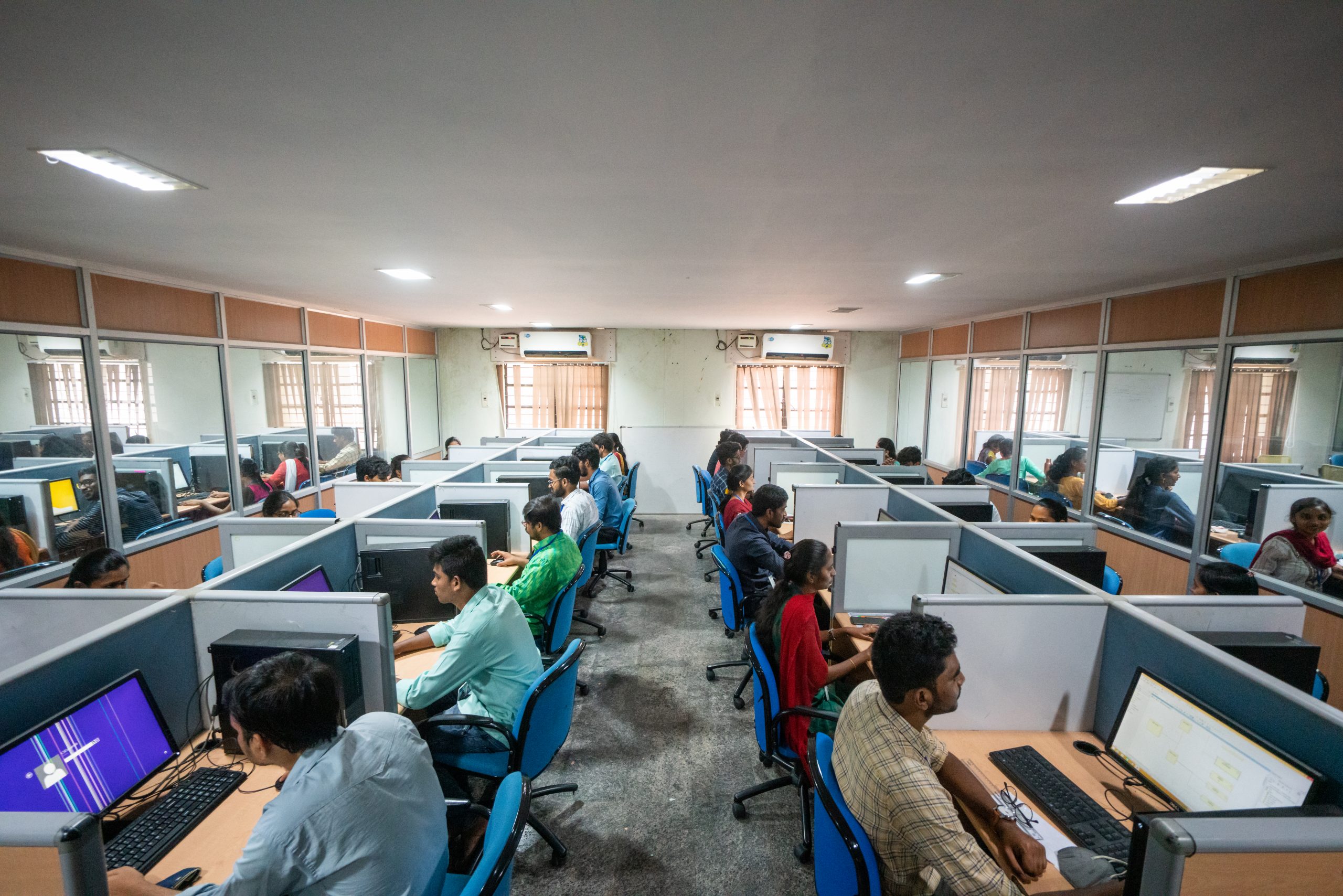
Computer Science and Engineering
<ul class=”dept-brochure-ul”>
<li><a href=”https://svuniversity.edu.in/storage/2023/02/CSE.pdf” target=”_blank” rel=”noopener”>Download Brochure <img src=”/wp-content/uploads/2022/03/PDF_Sym.jpg” />
</a></li>
</ul>
Dr.M.Humera Khanam has been working as Professor, Department of Computer Science and Engineering, Sri Venkateswara University, Tirupati, Andhra Pradesh. She has 24 years of teaching experience. Her areas of interests include Artificial Intelligence, Machine Learning, Speech and Language Processing, Human Computer Interaction and Big data. Dr.M.Humera Khanam had been awarded with PhD degree in Computer Science and Engineering from Sri Venkateswara University, Tirupati, A.P, India. She published several papers in reputed national and international journal with high impact factor, she attended 30 national and international conferences and presented papers. She chaired as a resource person for AICTE sponsored seminars, workshops and conferences. She delivered invited talks in several conferences, guided number of B.Tech and M.Tech projects, no. of Ph.D scholars working under her guidance. She is a Member of IEEE, Life member of ISTE, Life Member of SVUWTA, Life Member of SVUWTA, Member BOS (UG&PG), CSE, Member of ISC (SLM2728), Life time member of CEGR (CEGR/OU), Member of the Editorial Board of IJNLC, Life Member of SVUTA. She received “National award for Teaching Excellency. The award was presented to her in the Computer Science and Engineering category at the Indo-American Education Summit and Expo 2013. She received “Outstanding Faculty Award”. The award was presented in the Computer Science and Engineering category from Venus International Faculty Awards – VIFA 2016, Venus International Foundation, on 9th July 2016, Chennai, India. She is serving as BOS member in Computer Science and Engineering. She is serving as BOS member in several Engineering colleges. She served as Nodal Officer, National Academic Depositary, Flying officer in NCC, Deputy warden and PG, NBA, NAAC Coordinator.
Computer Science and Engineering
Dr Ch D V Subba Rao
Staff Designation : Professor & HeadQualifications :
Experience : 30 Years
Faculty Type : Regular
Specializations : Computer Science and Engineering
Research Interests : Distributed/ Peer-to-Peer Systems, Wireless Networks, Data Mining and Cloud Computing
Email : subbarao_chdv@hotmail.com, chdvsrao@gmail.com
Dr. M. Humera Khanam
Staff Designation : Professor, BOSQualifications : B.E, M.Tech, Ph.D
Experience : 24 Years
Faculty Type : REGULAR
Specializations : Computer Science and Engineering
Research Interests : Speech and Language Processing, Artificial Intelligence & Machine Learning, Human Computer Interaction, Data Analytics and Big data, Internet of Things
Email : humera.svec@gmail.com
Dr. N. Usha Rani
Staff Designation : Associate ProfessorQualifications : B.Tech(CSE),M.Tech(AI), Ph.D
Experience : 14 Years
Faculty Type : Regular
Specializations : Artificial Intelligence
Research Interests : Machine Learning, Deep Learning, Fuzzy Logic, Genetic Algorithms Data Mining, BigData Analytics
Email : usharani.ur@gmail.com
Dr. D VIVEKANANDA REDDY
Staff Designation : ProfessorQualifications : B.Tech, M.Tech, Ph.D
Experience : 15 Years
Faculty Type : Regular
Specializations : Computer Science and Engineering
Research Interests : Software Engineering, Artificial Intelligence & Machine Learning, Cyber Security, Data Analytics and Big data, Internet of Things.
Email : svuvivek@gmail.com

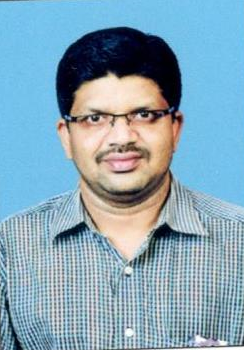
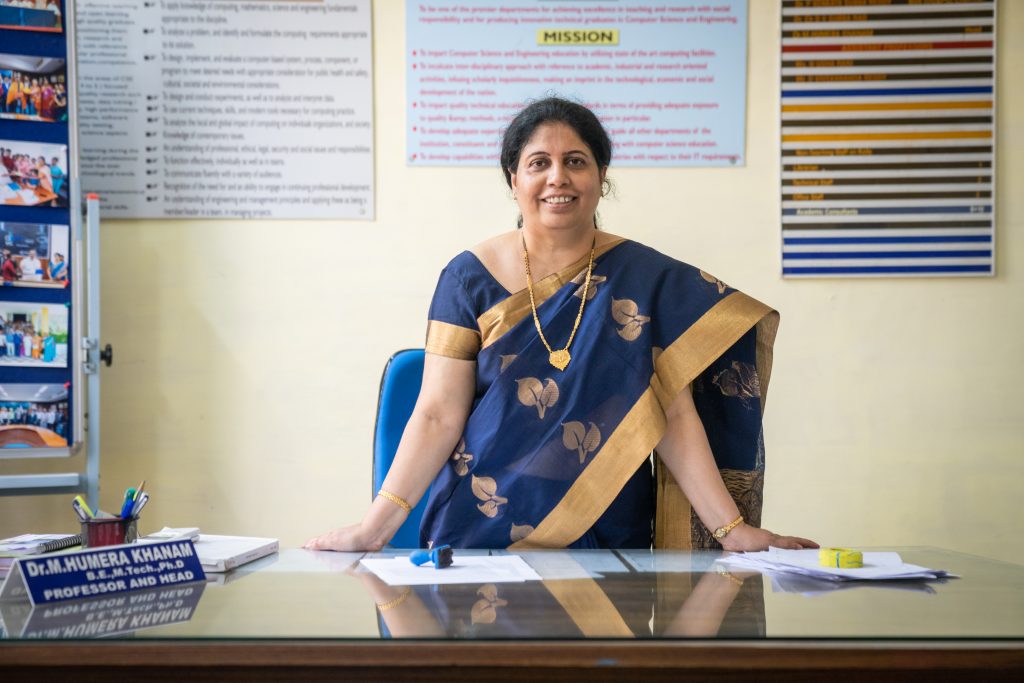
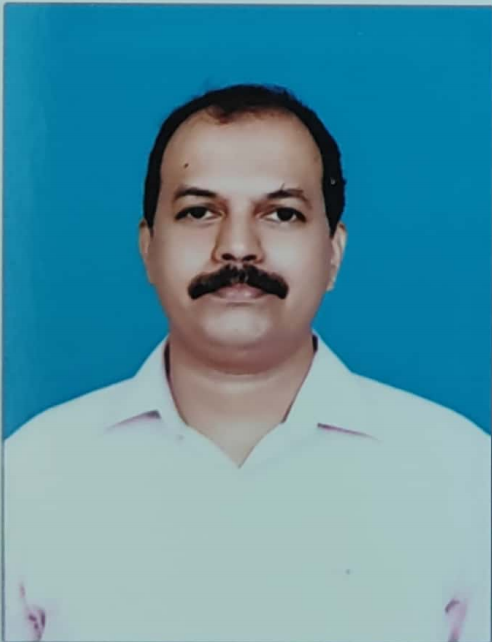
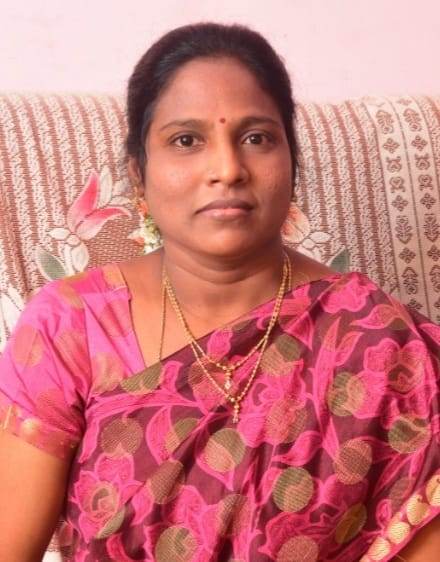


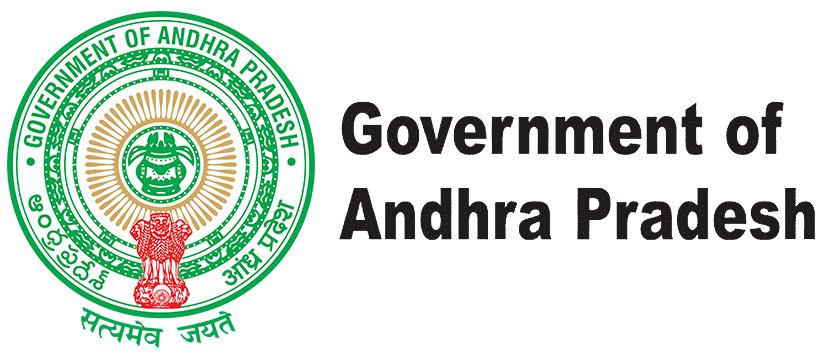

 FLYING STARS
FLYING STARS